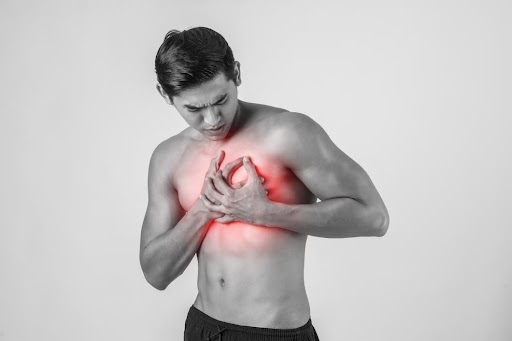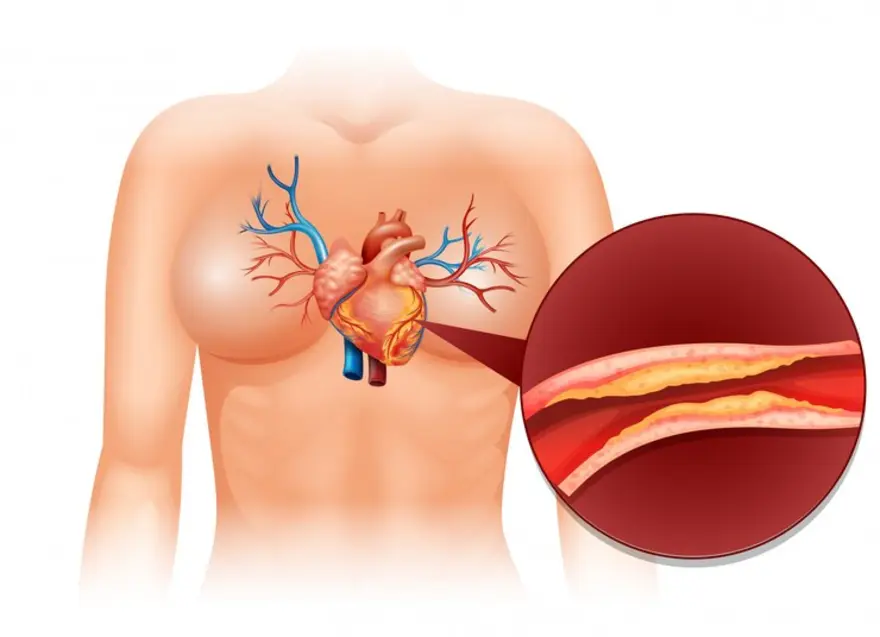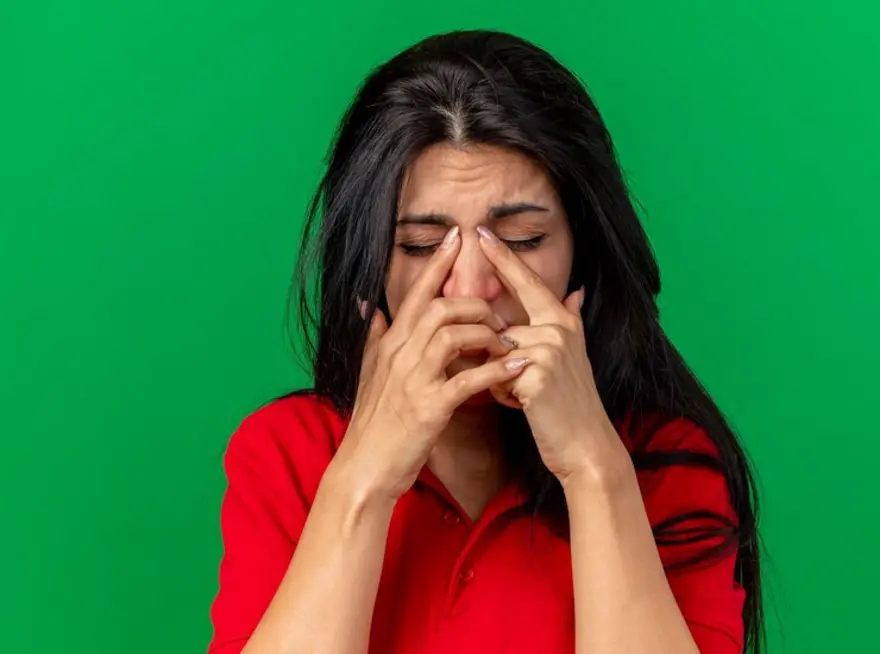Preventive Healthcare
Why Left Side Pain Shouldn't Go Untreated
45650 Views
0

What is left-side chest pain?
There can be many different reasons for left-side chest pain. While the first thought that occurs when the left side of your chest pains is a heart attack, this pain can also indicate problems with your lungs, muscles, bones, or even digestive issues.
If you experience a sharp chest pain on your left side that feels like pressure, it could be because of a heart issue. At times, you may also feel nauseous, but this signifies problems with your digestive system. In the case of lung problems, you will have difficulty breathing and left chest pain.
Is left chest pain a symptom of a heart attack?
Left chest pain is one of the most well-known symptoms of a heart attack. However, there are other symptoms that you also need to take into consideration to conclude that your pain is related to a heart attack. It is best to convey all your symptoms to your doctor before completing yourself.
What are the most common causes of left-side chest pain?
When you have pain in your left side, it could have a range of different issues related to your heart, blood vessels, lungs, digestive issues, and other areas of your body.
Heart and vascular issues
Most heart and blood vessels strive to ensure your blood goes to the right place. A blockage in your blood vessels or weakening of the walls of your blood vessels are significant reasons you may feel left chest pain.
- Heart attack: When your heart doesn't get enough oxygen, the muscles in your heart start to die. This can be because of blockages in the coronary artery that supplies blood to the heart. This is why you may feel a little pain or pressure over the wide area of your chest.
- Coronary Artery Diseases: The buildup of cholesterol in your blood vessels can cause them to narrow and ultimately get blocked. This causes less blood flow to your heart, which causes the pain to get worse the more exercise you do. This pain may come and go and, most often, can be relieved when you are at rest.
- Coronary artery dissection: When your coronary artery walls rip, it can create a bulge or blockage in your artery, causing excessive pressure or pain in your chest. This could then lead to a heart attack.
- Pericarditis: This is a type of infection that can cause inflammation in the lining around your heart that causes a sharp pain in your chest. This pain then spreads to your shoulder or arms on the left side. Pericarditis can cause chest pain while breathing and when you lie down.
- Hypertrophic cardiomyopathy: In this condition, the muscular walls of your pumping ventricles (or lower heart chambers) may become stiff and thick. Due to this, your heart is unable to get enough blood in or out of your heart chambers, and your heart cannot get oxygen-rich blood. One of the main reasons for this condition is problems with your genes that get passed down from your biological parents.
- Aortic dissection: A tear in the walls of your arteries, which causes the layers of your walls to come apart. The pain you experience at this time feels like something is ripping and can happen without any warning. This pain can be felt in your back, chest, or between your shoulders. This condition is a severe medical emergency.
- Aortic aneurysm: This condition causes your aorta walls to bulge out as blood pushes against the weaker parts of your aorta walls. If this remains untreated, the weak spot can break open and cause severe pain in your abdomen and chest, and you will need immediate emergency treatment.
- Mitral valve prolapse: This valve lets the blood flow between your left atrium and ventricle that may not close completely every time your heart beats, allowing the blood to flow back into the chamber it just left.
Digestive Issues
Another left side chest pain reason is your digestive system.
- Hiatal hernia: This is a condition in which a part of your stomach has an opening in your diaphragm muscles that reduces the blood flow to your stomach and can often cause problems swallowing.
- Gastritis: Inflammation in your stomach lining causes your lower left chest to hurt, which can cause you to feel sick and even vomit.
- Pancreatitis: This is when your pancreas gets inflamed and can cause severe pain in your upper abdomen that can be mistaken as chest pain. It can also make you feel nauseous.
- Oesophagal spasm: Smooth muscle contractions of your oesophagus that cause it to burn and squeeze in your chest.
- Gastroesophageal reflux disease (GERD): Excessive acid production in your stomach can reflux your oesophagus and cause a burning sensation in your chest.
Lung issues
Medical conditions of your lungs can cause left chest pain. Most of these conditions need you to undergo treatment quickly, especially when you are having trouble breathing.
- Pulmonary embolism: If a blood clot from another area in your body gets stuck in the pulmonary artery in your lung. This can also cause shortness of breath and sharp chest pain while breathing.
- Chronic obstructive pulmonary disease: This is an issue with your air sacs and the lining of your airway that makes it difficult for you to breathe. Your chest may also start feeling tight.
- Pneumonia: If your immune system is not strong enough, you may get an infection in your lungs. This infection can cause pain in either side of your chest, but you will also display symptoms like high fever, cough with mucus, and chills.
- Collapsed Lung (Pneumothorax): When the air gets between the layers of the tissue that covers your lungs and causes your entire lung or a part of it to collapse without warming. This can cause a sharp pain in your chest, neck, and shoulder.
- Asthma: In this case, an irritant or allergen can temporarily narrow or block your airway, causing you to have issues breathing. You also feel a tightness in your chest along with wheezing and coughs.
- Pulmonary hypertension: Many disorders can put high pressure on your pulmonary arteries, which are responsible for taking in deoxygenated blood and giving out oxygenated blood. As it becomes harder for your heart to push blood through your blood vessels that have narrowed because of hypertension, you will feel some chest pain.
Musculoskeletal issues
These medical issues may not involve significant organs but still need medical attention.
- A Broken Rib: During accidents or because of excess trauma, the ribs that protect the lungs and chest can get cracked or broken. This can cause excessive chest pain, and it can hurt for several weeks.
- Costochondritis: An inflammation in your cartilage that connects your ribs to your breastbone can cause left chest pain.
- Sprained chest muscle: An injury that can create tears in your muscles that cause pain when you move. You may also experience swelling and bruising.
Female chest pain on the left side can be caused due to breast cancer.
How is left-side chest pain treated?
Your doctor will help treat your left-side chest pain. Heart and a few lung issues need immediate treatment and emergency care. Other treatment methods for left-side chest pain include
Medicines are used for:
- Heart attacks
- Coronary artery diseases
- Coronary artery dissection
- Pericarditis
- Aortic dissection
- Aortic aneurysm
- Mitral valve prolapse
- Hiatal hernia
- Pancreatitis
- Gastritis
- COPD
- Asthma
- Pulmonary hypertension
- Pulmonary embolism
- Shingles
- Broken ribs
- Pleurisy
- Sprained chest muscles
Surgeries and procedures may be needed for severe cases of:
- Coronary artery disease
- Coronary artery dissection
- Pericarditis
- Heart attacks
- Hypertrophic cardiomyopathy
- Hiatal hernia
- Mitral valve prolapse
- Aortic aneurysm
- Aortic dissection
- Pneumothorax
- Pleurisy
- Pulmonary embolism
- Pancreatitis
Lung cancer may also need treatment options that include radiation, surgery, and chemotherapy.
What should I do for left chest pain?
If you experience severe pain in your left side, contact your doctor or a local emergency number. However, mild cases of chest pain can be treated at home with over-the-counter medications that help with your digestive system.
What are the possible complications or risks of not treating left-side chest pain?
Skipping treatment or letting your left-side chest pain go untreated can be life-threatening. Any condition in which your cells do not get enough oxygen from your blood can also limit life. This includes conditions like asthma or COPD as well as other heart conditions.
If an aortic aneurysm is left untreated, it can burst and be fatal. Untreated left-side chest pain due to gas leads to stomach cancer or sepsis, while lung cancer can also be deadly when you don't get treatment.
Can left-side chest pain be prevented?
Left-side chest pain can be easily prevented by adopting healthy lifestyle shapes like:
- Eating foods that are low in salt and fat
- Maintaining a healthy weight
- Avoiding tobacco use
- Limiting your alcohol intake
- Exercising regularly, at least three times a week
- Managing health issues such as high blood pressure, cholesterol, or diabetes.
Other steps that help avoid left-side chest pain and the diseases that come with it are:
- Preventing blood clots that can cause a pulmonary embolism
- Get the chickenpox or shingles vaccine
- Stay away from anything that can cause an asthma attack
- Do not use tobacco products that can cause pneumonia, pneumothorax, COPD, or lung cancer
- Stay away from spicy or overly fatty foods that can cause heartburn
- Get quick treatment for any respiratory infection that can cause pleurisy
Conclusion
Chest pain on the left side can be caused by excessive stress on your cardiac, respiratory, or digestive systems. Taking care of these vital organs of your body and taking care of your overall health can help avoid this pain. Metropolis Labs provides a wide range of tests that can help you keep your health in check and find any hidden symptoms or conditions in your vital organs before they can become life-threatening—contact experts today to book your appointment
 Home Visit
Home Visit Upload
Upload














1701259759.webp)









 WhatsApp
WhatsApp